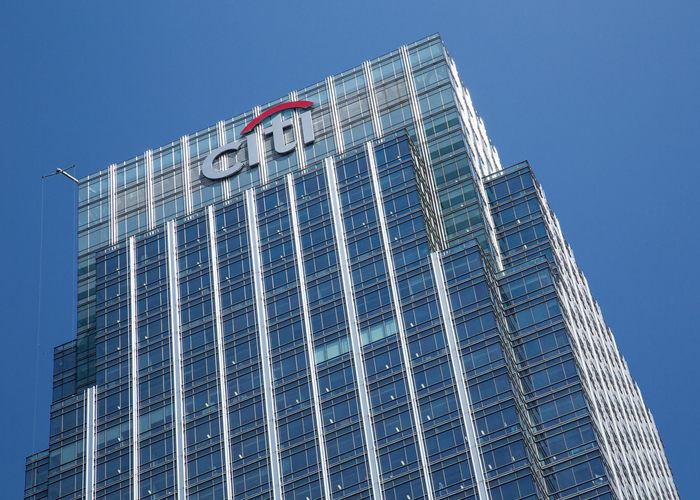ii view: Citigroup reports contrasting fortunes
Earnings fell by 74% and the bank's shares are down by over a third in 2020. Is the worst over?
15th July 2020 15:40
by Keith Bowman from interactive investor
Earnings fell by 74% and the bank's shares are down by over a third in 2020. Is the worst over?

Second-quarter results to 30 June 2020
- Revenue up 5% to $19.76 billion
- Net Income fell 73% to $1.3 billion
- Earnings per share down 74% to $0.50
Chief executive Michael Corbat said:
“While credit costs weighed down our net income, our overall business performance was strong during the quarter, and we have been able to navigate the Covid-19 pandemic reasonably well.
"The Institutional Clients Group had an exceptional quarter, marked by an increase in Fixed Income of 68%. Global Consumer Banking revenues were down as spending slowed significantly due to the pandemic."
ii round-up:
US bank Citigroup (NYSE:C) reported second-quarter results which beat analyst expectations, despite raising further provisions to cover expected bad debts due to the coronavirus pandemic.
Citi, which operates through the two divisions of Global Consumer Banking and Institutional Clients, reported earnings per share of $0.50. That's a fall of 74% over the second quarter of 2019, but better than analyst estimates of closer to $0.30 per share.
Citigroup shares drifted around 2% lower following the announcement, with investors also digesting results from rivals JP Morgan (NYSE:JPM) and Wells Fargo (NYSE:WFC). Citi shares are down by over a third year-to-date.
Like rival JP Morgan, bond and equity trading at its Institutional Clients division helped to partially compensate for increased bad debt provisions at its Banking division. Institutional client sales rose by 21% year-over-year while global banking revenues fell by 10%.
Net credit losses rose by 12% to $2.2 billion, but volatile Covid-hit bond trading generated a near-70% increase in fixed income revenues to $5.6 billion. The period again witnessed the US Federal Reserve buying more bonds.
Citi's Institutional Client division provides cash management and trade solutions to around 90% of Global Fortune 500 companies. Global consumer banking serves more than 110 million clients in over 15 countries.
Citi’s total allowance for credit losses on loans now stands at $26.4 billion or nearly 4% of the total loan book – up from under 2% at the end of the first quarter.
In June, Citi declared a quarterly dividend of $0.51 per share, unchanged from the previous three quarters. In March, it suspended its share buyback programme, given both caution for the outlook and a regulatory push to prioritise lending to customers over shareholder returns.
ii view:
A more global bank than rival JP Morgan, with less than half of its revenue generated in the US and more than a third coming from Asia and Latin America, Citigroup offers investors a smaller and structurally simpler alternative to its Dow Jones constituent rival.
Covid-19 has seen the International Monetary Fund (IMF) predict the worst recession since the Great Depression. Citigroup, like rivals JP Morgan and Well Fargo, has moved quickly to try and allow for the expected deep economic downturn.
For investors, given the fallout and subsequent rebuilding of balance sheets from the financial crisis, US banks have generally come into this new crisis in good shape. A dividend continues to be paid even if the share buyback programme has been suspended. But with global Covid cases still rising, and an eventual reduction in US government economic aid and stimulus potentially raising bad debt provisions further, Citi may not be out of the woods yet.
Positives:
- Geographical diversity
- Investment bank or Institutional client revenue rose by 21%
Negatives:
- Share buyback programme suspended
- Lower interest rates are broadly bad for bank profitability
The average rating of stock market analysts:
Buy
These articles are provided for information purposes only. Occasionally, an opinion about whether to buy or sell a specific investment may be provided by third parties. The content is not intended to be a personal recommendation to buy or sell any financial instrument or product, or to adopt any investment strategy as it is not provided based on an assessment of your investing knowledge and experience, your financial situation or your investment objectives. The value of your investments, and the income derived from them, may go down as well as up. You may not get back all the money that you invest. The investments referred to in this article may not be suitable for all investors, and if in doubt, an investor should seek advice from a qualified investment adviser.
Full performance can be found on the company or index summary page on the interactive investor website. Simply click on the company's or index name highlighted in the article.